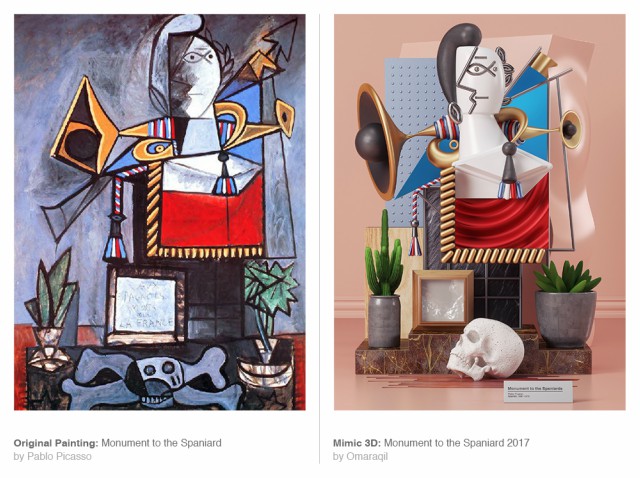Undoubtedly, Pablo Picasso is one of the greatest artists of the 20th century and one of the most important figures in modern art.
Together with Frenchman, Georges Braque, Picasso pioneered the avant-garde art movement known as Cubism, which revolutionized European painting and sculpture.
Thanks to Picasso’s works, this movement spread rapidly throughout the world and influenced many artists in the following period. Moreover, Picasso’s influence went beyond the 20th century, and there are numerous contemporary artists inspired by his works. Among these artists is the Pakistani illustrator Omar Aqil, who recreated some of Picasso’s masterpieces as 3D renderings.
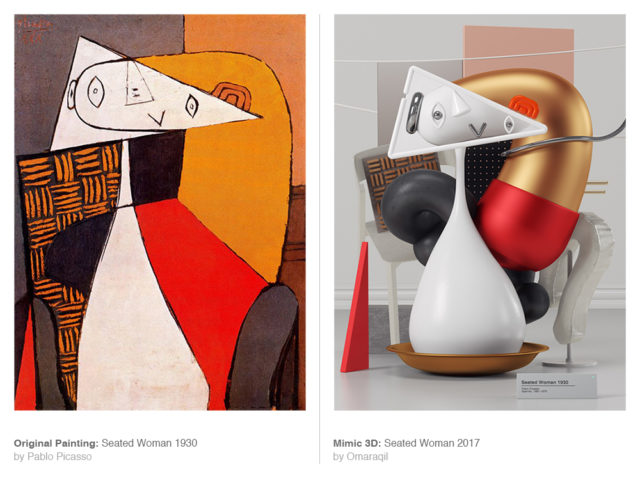
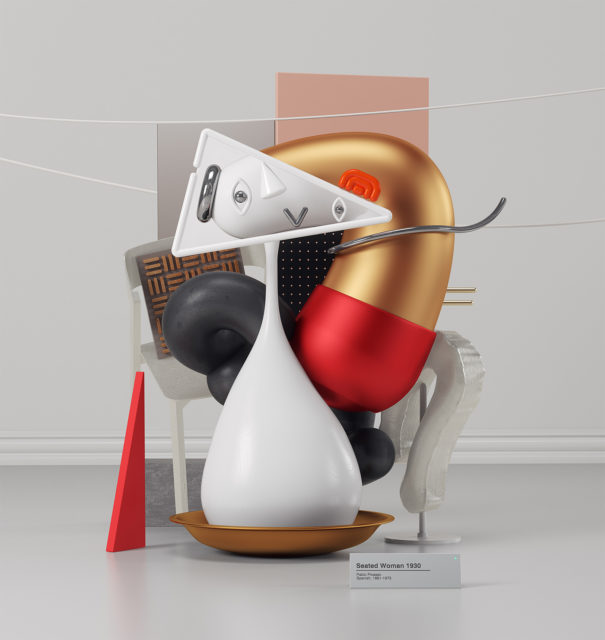
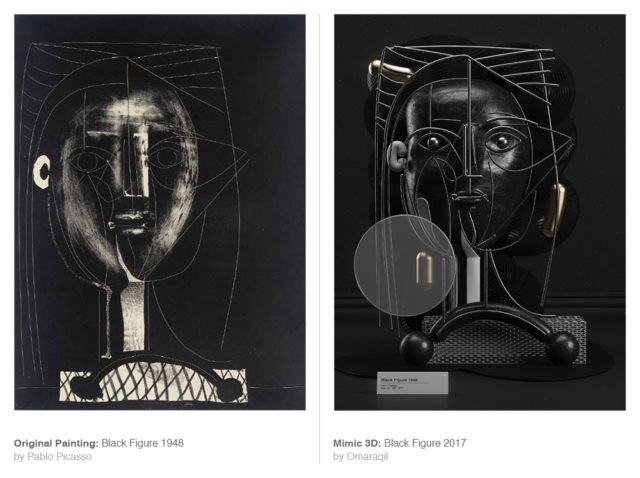
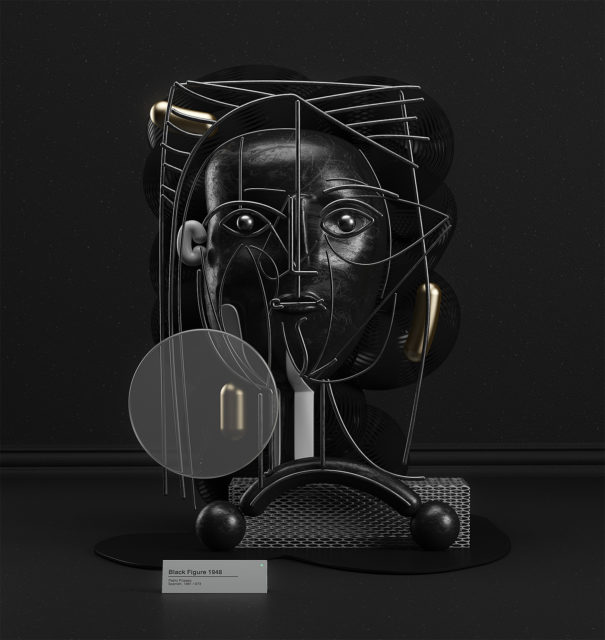
Aqil wrote on Behance that he has been studying Picasso’s artworks since the beginnings of his career and added that Picasso’s abstract visual language has always inspired him.
In the latest series of his new visual experiments using art from the past, titled MIMIC, the Pakistani digital artist randomly picked 6 of Pablo Picasso’s paintings and by using Photoshop, Illustrator and Cinema 4D-Ray he recreated them into sleek 3D visuals.
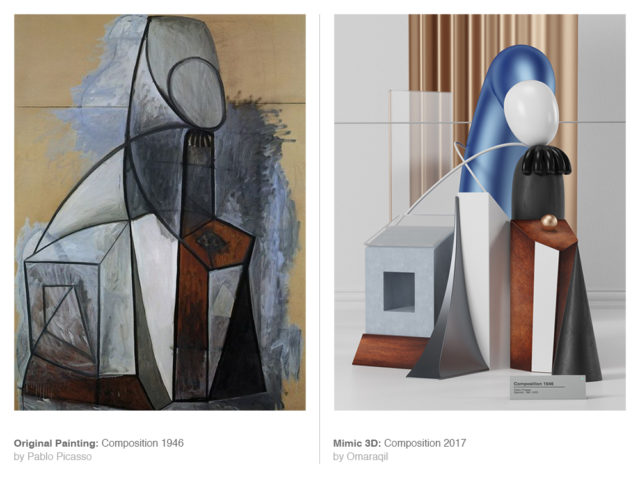
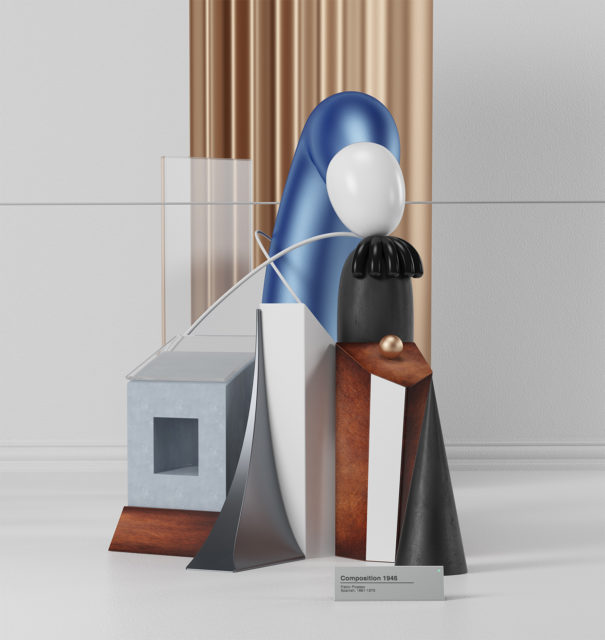
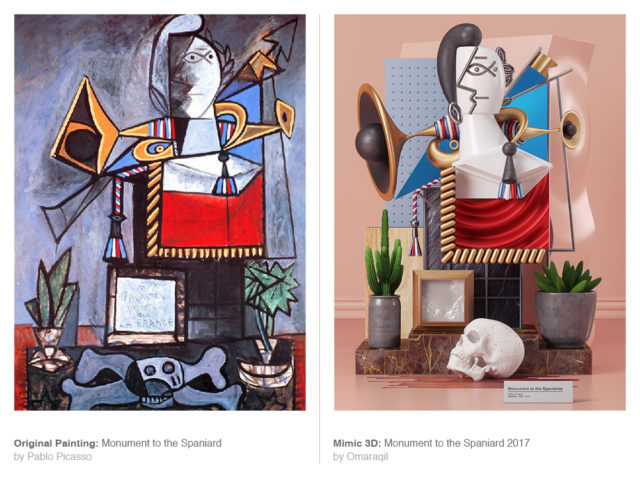
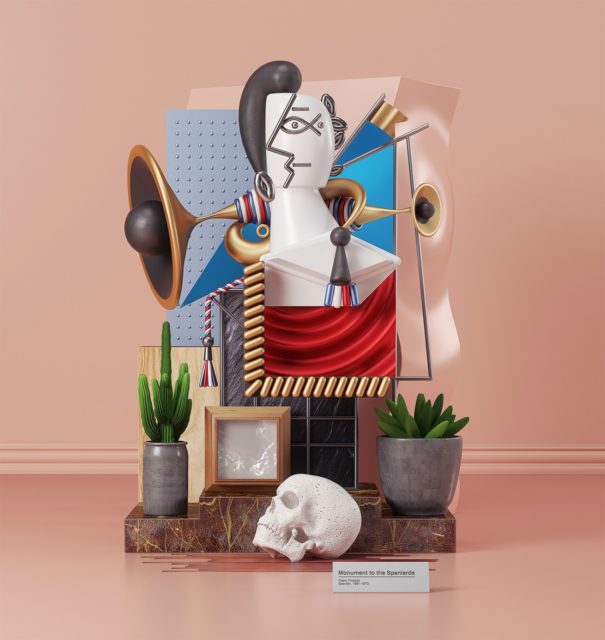
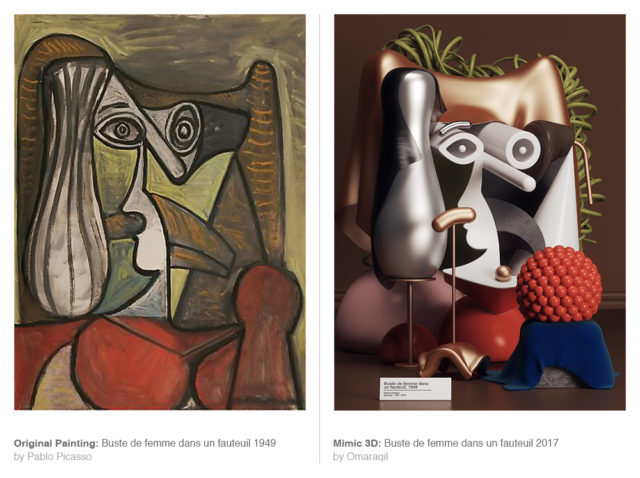
As Christopher Jobson wrote for Colossal, “while Picasso himself created hundreds of sculptures, Aqil’s interpretations add a bit of whimsy and his own personal touch to the 20th-century artist’s oil paintings”
It has been estimated that during a 75-year career span, Picasso produced around 50,000 artworks and Aqil randomly recreated the following six: Visage (1928), Seated Woman (1930), Composition (1946), Monument to the Spaniards (1946-1947), Black Figure (1948), and Buste de femme dans un fauteuil (1949).
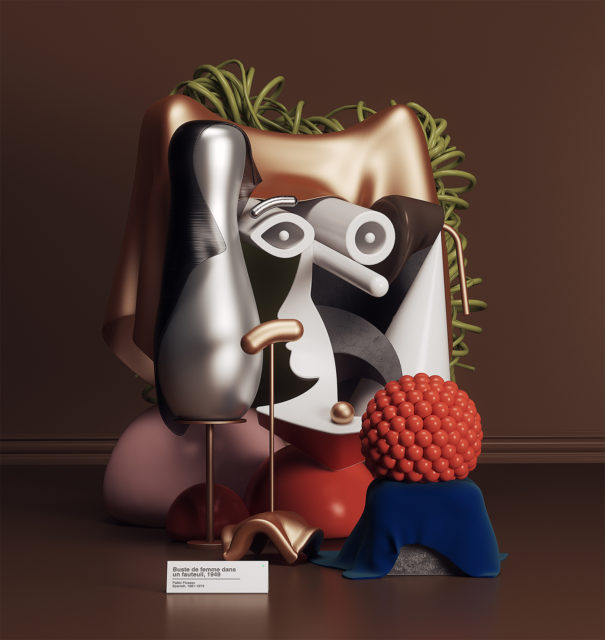
Check out Aqil’s account on Behance and explore more of his wok.
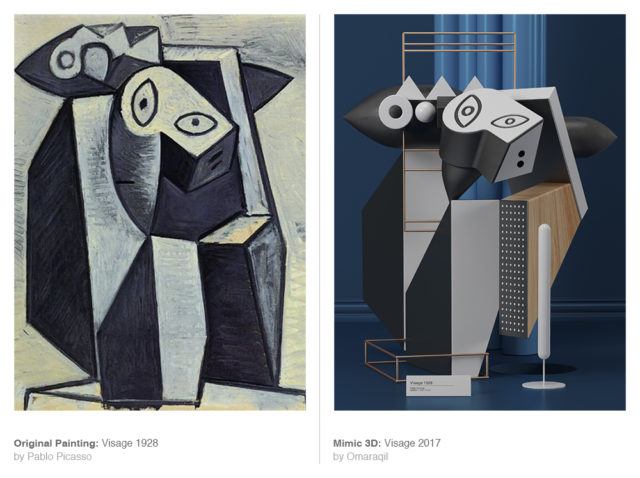
The artist has patiently transformed Picasso’s two-dimensional Cubist works of art into a three-dimensional form, and it is quite obvious that Aqil has an eye for detail. Although he is not the only digital artist inspired by Picasso’s works his exceptional attention to textures and shadows emphasizes his authenticity.
The artist says that in the visual mimicry which he has shown, the skill responds when it meets the complexity of someone’s thoughts and the way the symbolism of the shapes and forms change to create new physical qualities.
